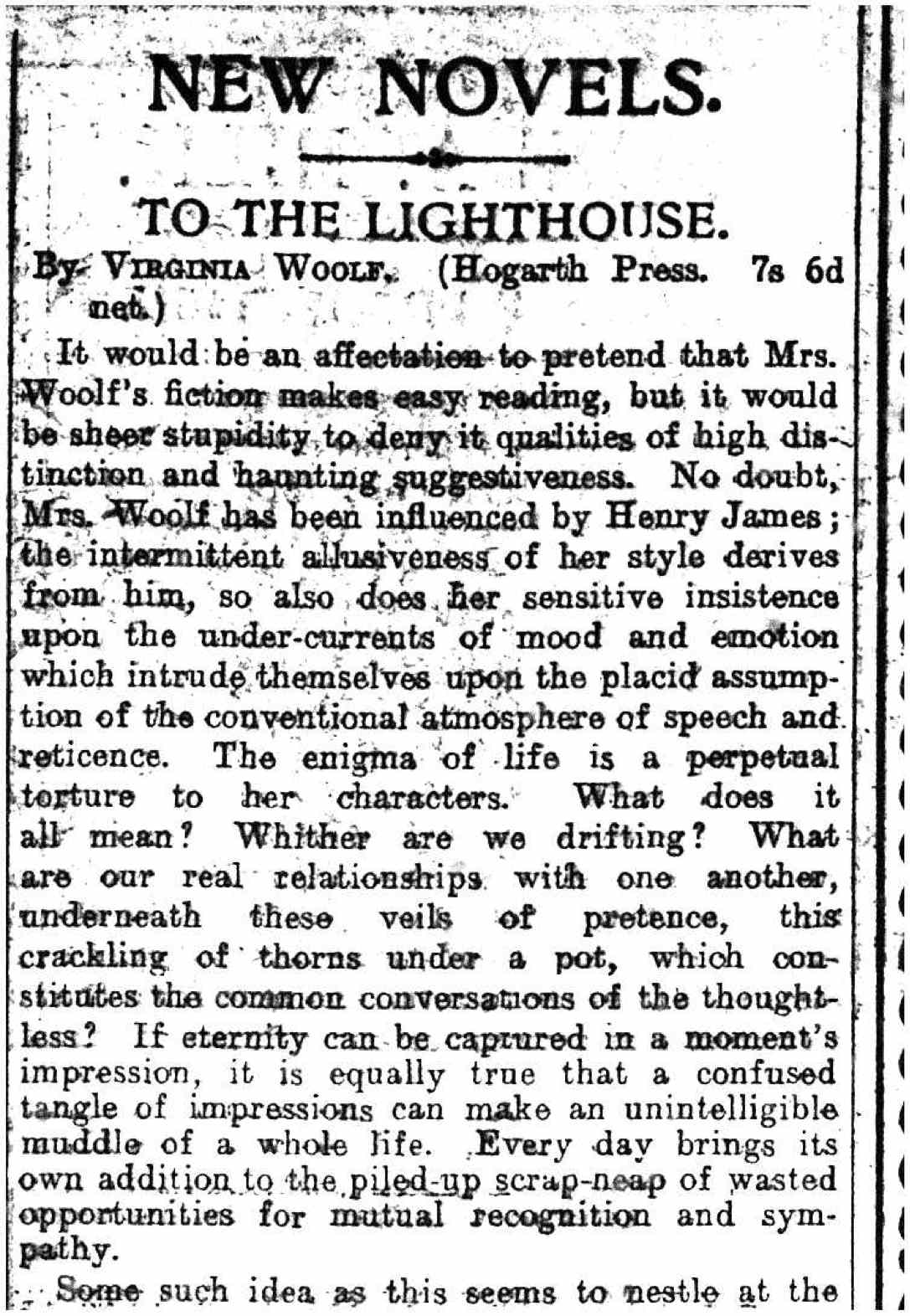
Daily Telegraph. May 27, 1927, p.17.
NEW NOVELS.
___________________
TO THE LIGHTHOUSE.
By VIRGINIA WOOLF. (Hogarth Press. 7s 6d
net.)
It would be an affectation to pretend that Mrs.
Woolf’s fiction makes easy reading, but it would
be sheer stupidity to deny it qualities of high distinction
and haunting suggestiveness. No doubt
Mrs. Woolf has been influenced by Henry James;
the intermittent allusiveness of her style derives
from him, so also does her sensitive insistence
upon the under-currents of mood and emotion
which intrude themselves upon the placid assumption
of the conventional atmosphere of speech and
reticence. The enigma of life is a perpetual
torture to her characters. What does it
all mean? Whither are we drifting? What
are our real relationships with one another,
underneath these veils of pretence, this
crackling of thorns under a pot, which constitutes
the common conversations of the thoughtless?
If eternity can be captured in a moment’s
impression, it is equally true that a confused
tangle of impressions can make an unintelligible
muddle of a whole life. Every day brings its
own addition to the piled-up scrap-heap of wasted
opportunities for mutual recognition and sympathy.
Some such idea as this seems to nestle at the
heart of “To the Lighthouse.” Mr. Ramsay, a
dreaming scientist, and his capable, busy wife
have brought their eight children to a cottage in
the North of Scotland and surrounded themselves
with friends, an argumentative atheist, a disillusioned
girl-artist, a pair of young lovers,
and so forth, all bent on making the best of holiday-
time. Across the bay is a lighthouse, which
makes a fascinating expedition, when it is fine, and
Mrs. Ramsay, always bent on good works, wants
to go over there with gifts for the keeper and his
children. Her little boy James wants terribly to
go also, for the sake of the adventure. But the
expedition is never made, or, when it is made,
years afterwards, Mrs. Ramsay is dead and James
has grown up. The purpose of the expedition has
vanished, just as all purposes seem to vanish in
this world of half-lights and half-realised perceptions.
The little company here gathered together
seems to be continually struggling to establish
communications one with another, to understand
the interactions of its pilgrimage, to arrive at the
meaning of life. But always, just when a confidence
appears to be forming itself, an interruption
intrudes, the spell is broken, the rigid convention
of artificiality reasserts itself. The world is a
wilderness where pilgrims meet and pass in the
night, vainly endeavouring to break down the
barriers that separate one personality from
another. Vision is something; sympathy is something
also; but the vision is partial, the sympathy
is a groping in the dark. It is rather a grey reflection,
but it will carry its own conviction to the
thinker. And it is for the thinker that Mrs. Woolf
writes, out of the intensity of her own thoughtfulness
and doubt.






